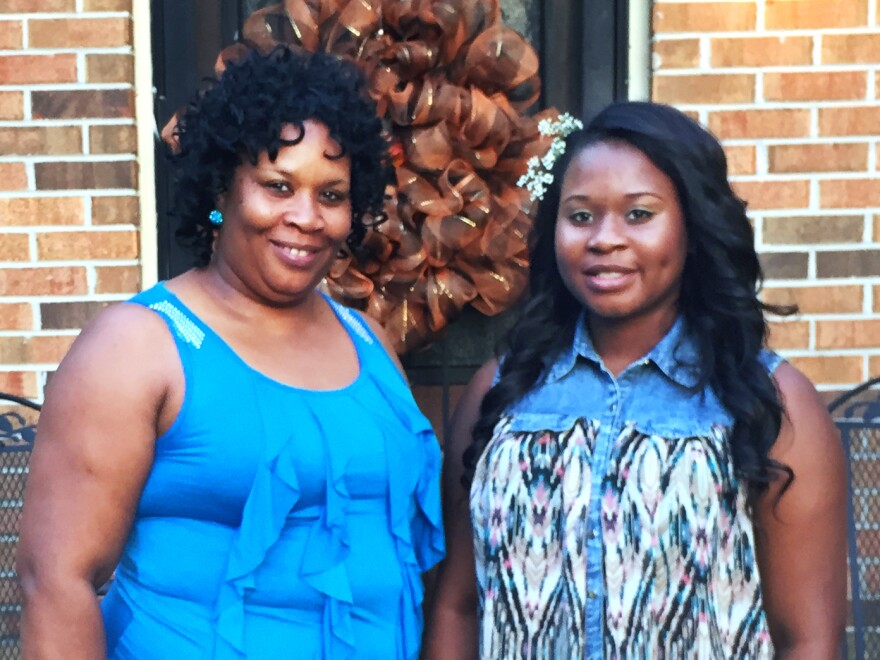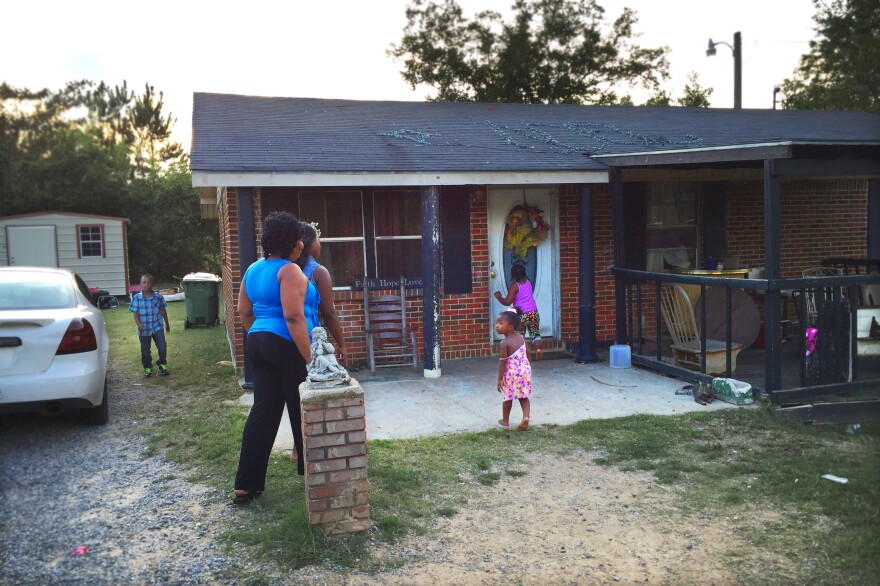HIV was once considered an urban problem. Now, parts of the rural South — where the stigma is strong but health resources and education are not – has some of the highest rates in the nation.
African-Americans have been hit especially hard, and Alabama's "Black Belt" region is no exception. This band of 18 counties stretching across the state's lower midsection was first named for its rich, dark soil. Today it is predominantly African American, the poorest part of a poor state and home to underfunded, segregated schools, a weak health care system, and an alarming number of new HIV cases. Here, young black men are at least 10 times likelier than the state average to contract the virus.
But with talk of HIV still largely taboo in rural Alabama, one nursing professor has turned to an unlikely technology in hopes of changing things: video games.
"Gaming is particularly appropriate for adolescents because of where their brains are," says Comfort Enah, of the University of Alabama at Birmingham. "We have a scenario where we have hormones, but they don't have the brain capacity to anticipate long-term consequences. So gaming can tap into that mismatch and kind of force them to see consequences right now."

Enah, a native of Cameroon, understands those consequences all too well. She's known many people, including family and friends in her home country and elsewhere, who've died of HIV.
So she's gathered a team of experts from disparate fields: infectious diseases, adolescent psychology and coding. Together, they're building a role-playing game they hope to have Internet-ready next fall.
Here's how it works. Players build avatars, customizing their appearance, hobbies, and personality. Then they respond to age-tailored but potentially risky situations any way they want. In the do-over world of the game, consequences include points, praise, good health and money ... or embarrassment, unemployment, HIV and even death.
The challenge is making an educational video game that kids actually want to play. Step One: Avoid preachy lectures and blatant messaging. That's obvious enough. Step Two: Involve the target audience from the start of development. That's the hard part in a place like Wilcox County, where even adults are reluctant to talk about HIV.
Enter health advocate and parent Ethel Johnson.
Using considerable hustle and her community bona fides, Johnson convinced the parents of 140 adolescents to let a stranger talk to their children — behind closed doors — about sexually transmitted diseases. The teens were divided into a dozen confidential focus groups to provide game feedback and help Enah and her team gauge the kids' knowledge of sex, drugs, and HIV.
"I knew it was a great need," Johnson explains. "They don't talk a lot about it at school. People don't like to talk ... because you're being labeled as, 'Why are you interested in HIV? Are you a bisexual? Homosexual? What is going on with you?' They don't want to discuss it. And I know ... that disease is big in the community. I felt the children needed to know."

Johnson's first recruit was her daughter, Wilcox Central High homecoming queen Clanlethia Johnson. The 16-year-old agrees that schools here don't adequately address HIV (a common refrain — the school system did not return numerous calls or emails for comment). But she says she and her friends certainly do play video games.
"I want to create two characters," says Clanlethia of Enah's game. "One that would kind of be a model of myself and what I would do. And sometimes I could transition to my other character, my wild character, so I can just see the outcomes of being, doing the opposite of what I would normally do."
The focus-group feedback wasn't entirely upbeat. Seventeen-year-old beta-tester Jacob Perryman says he liked the discussion groups — because HIV isn't covered enough in school — but an early version of the game did not meet his standards.
"To me, the game was pretty boring," he admits. "I felt like it could've been a little more graphic, a little more detailed ... To me, it was a 1990s game, like a Super Mario, and I felt like it could've been better with today's technology, to get kids more involved."
To be fair, that's exactly the kind of feedback Enah's team was looking for, and they're now using it to make changes. If Enah can win over teens like Jacob, a growing body of research suggests the game could have an impact on their real-world behavior.

"Avatars that the player identifies with are especially powerful," explains Debra Lieberman, director of the University of California, Santa Barbara's Center for Digital Games Research. "You'll hear players saying, 'Oh, I did this' or 'Oh, look what happened to me.' They are just totally transported into the game, and that avatar is them. There have been studies that have found that when your avatar engages in health behaviors, then you are more likely to go out into your daily life and adopt those behaviors."
That's what Enah wants to see, and not just in Alabama. If future studies show her game to be effective, she plans to tweak it for cultural differences, change the platform, and get it to Africa with it's almost one billion mobile phones.
Back in Wilcox County, the sun sets over the middle school's homecoming football game. Grill smoke and a few high notes from the school marching band hang in the air over a packed parking lot. It's a community event, one of few supervised activities for young people.
Between collecting ticket money and chatting with acquaintances, middle-school librarian Mary Cashow is more outspoken than most about HIV, and about Enah's video game.
"I think it's an excellent idea," she says with confidence. "There's a stigma attached to HIV ... I think education always helps. I think, a lot of times, I think stigma goes with people not being educated."
Local youth advocate Jacqueline Hives puts it this way: "We used to think people could get AIDS from touching someone ... And a lot of people are still walking around here afraid of the word itself."
Copyright 2014 WBHM 90.3 FM






